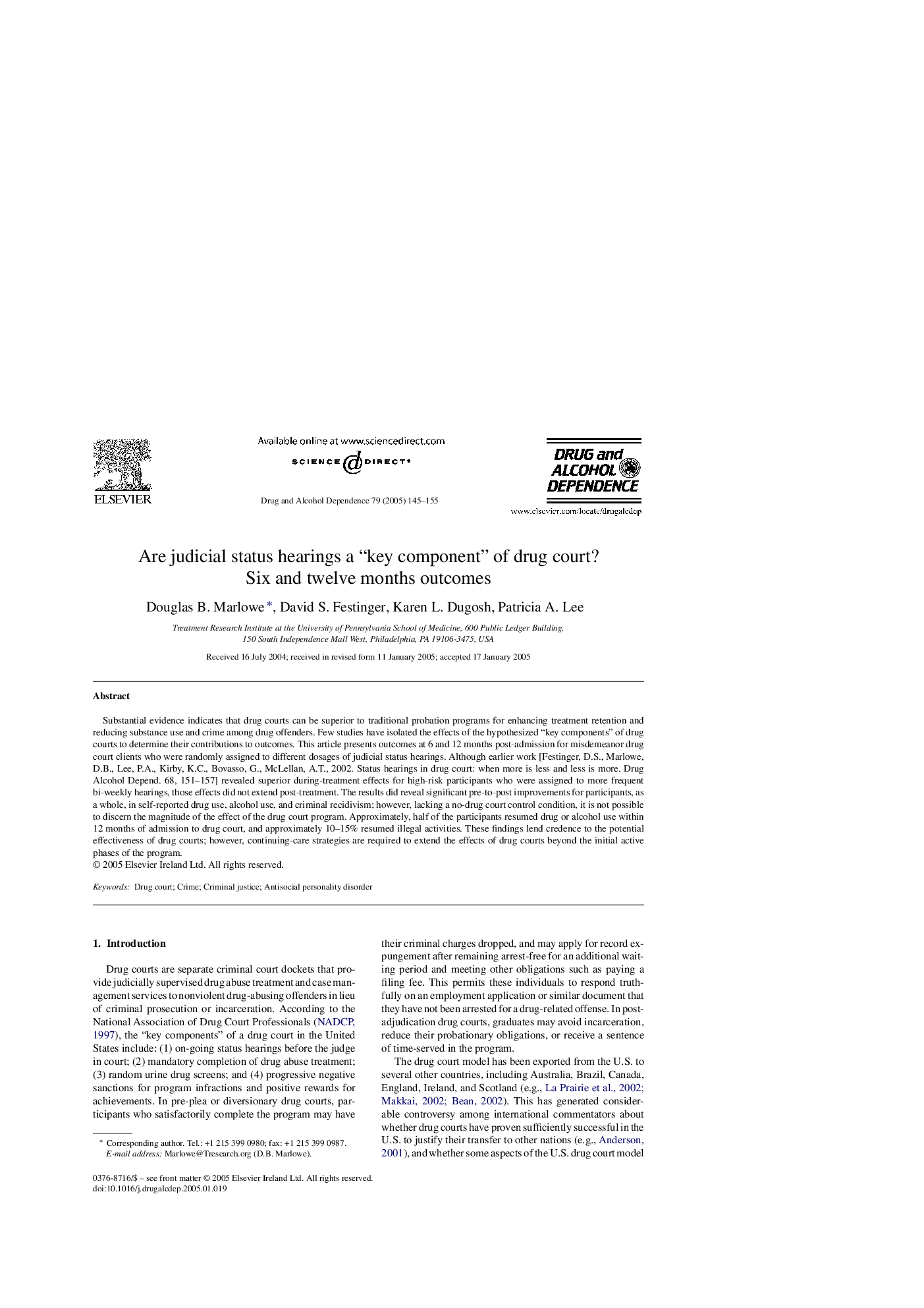| کد مقاله | کد نشریه | سال انتشار | مقاله انگلیسی | نسخه تمام متن |
|---|---|---|---|---|
| 10509886 | 949439 | 2005 | 11 صفحه PDF | دانلود رایگان |
عنوان انگلیسی مقاله ISI
Are judicial status hearings a “key component” of drug court?
دانلود مقاله + سفارش ترجمه
دانلود مقاله ISI انگلیسی
رایگان برای ایرانیان
کلمات کلیدی
موضوعات مرتبط
علوم زیستی و بیوفناوری
علم عصب شناسی
علوم اعصاب رفتاری
پیش نمایش صفحه اول مقاله

چکیده انگلیسی
Substantial evidence indicates that drug courts can be superior to traditional probation programs for enhancing treatment retention and reducing substance use and crime among drug offenders. Few studies have isolated the effects of the hypothesized “key components” of drug courts to determine their contributions to outcomes. This article presents outcomes at 6 and 12 months post-admission for misdemeanor drug court clients who were randomly assigned to different dosages of judicial status hearings. Although earlier work [Festinger, D.S., Marlowe, D.B., Lee, P.A., Kirby, K.C., Bovasso, G., McLellan, A.T., 2002. Status hearings in drug court: when more is less and less is more. Drug Alcohol Depend. 68, 151-157] revealed superior during-treatment effects for high-risk participants who were assigned to more frequent bi-weekly hearings, those effects did not extend post-treatment. The results did reveal significant pre-to-post improvements for participants, as a whole, in self-reported drug use, alcohol use, and criminal recidivism; however, lacking a no-drug court control condition, it is not possible to discern the magnitude of the effect of the drug court program. Approximately, half of the participants resumed drug or alcohol use within 12 months of admission to drug court, and approximately 10-15% resumed illegal activities. These findings lend credence to the potential effectiveness of drug courts; however, continuing-care strategies are required to extend the effects of drug courts beyond the initial active phases of the program.
ناشر
Database: Elsevier - ScienceDirect (ساینس دایرکت)
Journal: Drug and Alcohol Dependence - Volume 79, Issue 2, 1 August 2005, Pages 145-155
Journal: Drug and Alcohol Dependence - Volume 79, Issue 2, 1 August 2005, Pages 145-155
نویسندگان
Douglas B. Marlowe, David S. Festinger, Karen L. Dugosh, Patricia A. Lee,